Recognizing subtle signs in your body can help identify potential vitamin deficiencies that are often mistaken for normal aging. These deficiencies, if left unchecked, can lead to more severe health problems. By understanding and addressing these signs, individuals can improve their overall well-being and prevent further complications. Here are nine such indicators that can guide you towards better health.
1. Brittle Nails and Hair Loss

Frequent nail breakage and hair thinning may signal a deficiency in biotin (vitamin B7), which is essential for keratin production. Incorporate biotin-rich foods like eggs, nuts, and whole grains into your diet.
Did you know? Biotin is often called the “beauty vitamin” for its vital role in maintaining healthy hair and nails. Without it, your body struggles to produce keratin, leading to brittle nails and hair loss. Consider biotin supplements if dietary changes don’t improve these conditions.
2. Twitching Eyes or Limbs
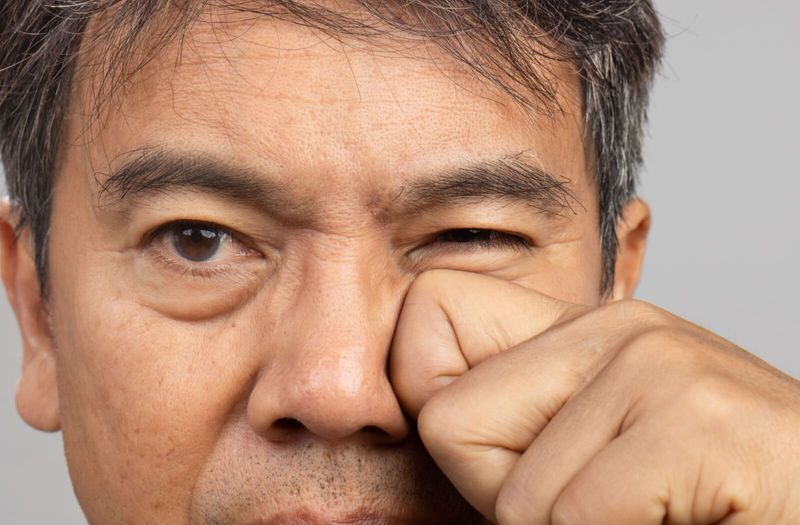
Involuntary muscle spasms can indicate a lack of magnesium, vital for muscle and nerve function. Increase magnesium intake by consuming bananas, dark chocolate, and nuts.
Have you ever wondered why your eye twitches at the most inconvenient times? A deficiency in magnesium might be the culprit. This essential mineral helps regulate muscle and nerve function, and its shortage can lead to those irksome twitches. Increase your magnesium intake to keep those spasms at bay.
3. Premature Graying of Hair
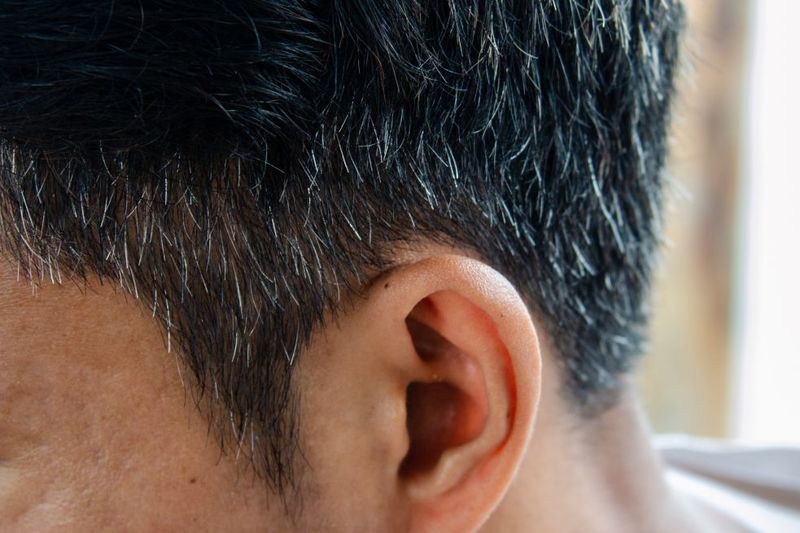
Early graying may be linked to deficiencies in vitamin B12 and copper, both crucial for melanin production. Include dairy products, eggs, shellfish, and whole grains in your diet to address this.
It’s often said that stress leads to gray hair, but did you know a lack of vitamin B12 and copper can also cause premature graying? These nutrients are vital for melanin production, the pigment responsible for hair color. Ensuring adequate intake can delay the onset of gray hairs.
4. Clicking Joints

Joint noises can result from insufficient vitamin D3 and calcium, which are essential for bone strength and joint lubrication. Ensure adequate intake of dairy, fish, and leafy greens.
Those unexpected crackles and pops in your joints could be more than just a sign of aging. A deficiency in vitamin D3 and calcium might be making your joints noisier than they should be. These nutrients are key to maintaining strong bones and properly lubricated joints.
5. Easy Bruising
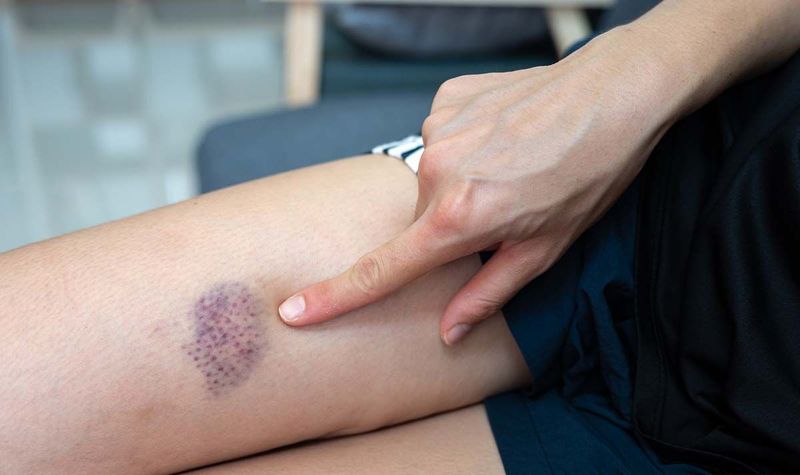
Frequent bruising without significant injury might indicate a deficiency in vitamin C or K1, both important for skin health and blood clotting. Consume citrus fruits, bell peppers, and leafy greens to boost these vitamins.
Are you finding bruises you can’t explain? The lack of vitamin C and K1 might be the reason. Both these vitamins are crucial for maintaining skin integrity and aiding in blood clotting. Incorporating them into your diet can help reduce unexplained bruising.
6. Cracked Corners of the Mouth
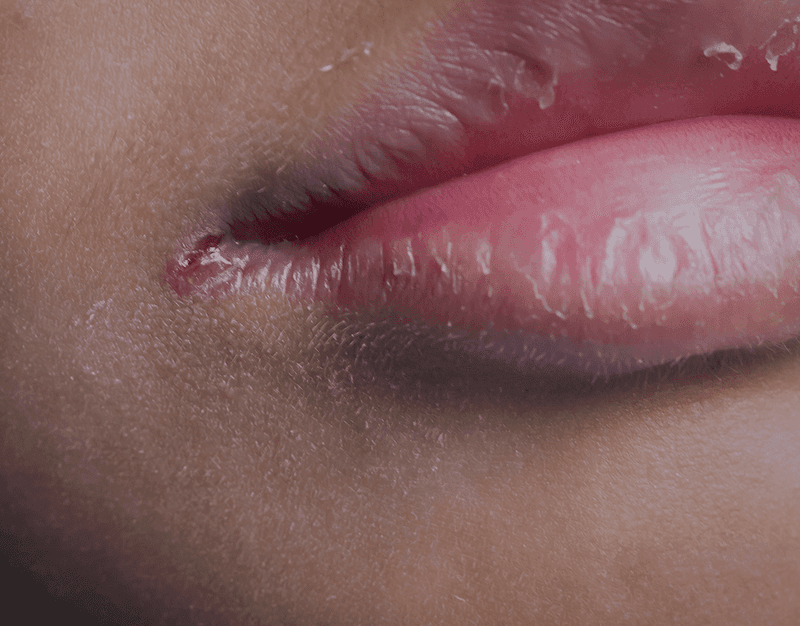
Painful cracks at the mouth’s corners can be a sign of vitamin B2 (riboflavin) and B6 deficiencies, which are vital for skin health. Include eggs, dairy, whole grains, and leafy greens in your diet.
Those uncomfortable splits at the corners of your mouth might not just be random occurrences. A deficit in riboflavin and vitamin B6 could be the underlying cause. These vitamins support skin health, and a lack thereof can lead to angular cheilitis.
7. Fatigue and Weakness
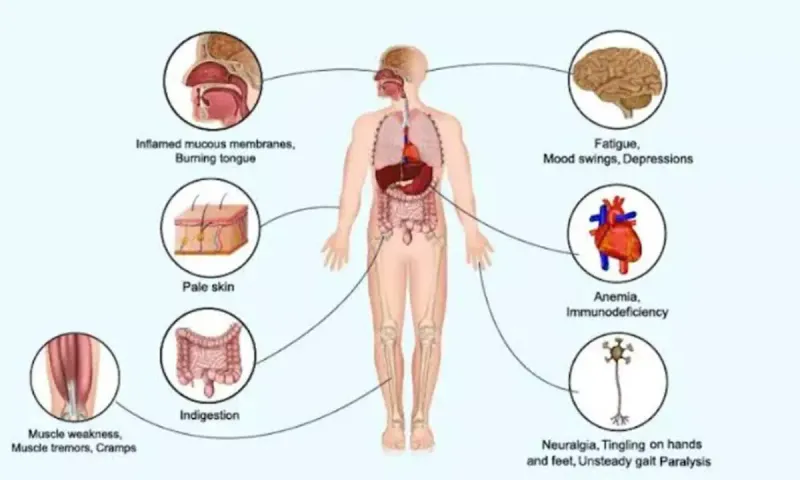
Persistent tiredness may be due to deficiencies in iron, vitamin B12, or vitamin D. Iron-rich foods like spinach and beans, along with vitamin B12 sources such as dairy and eggs, can help.
Feeling drained despite getting a good night’s sleep? It might be more than just a busy lifestyle. A lack of iron, vitamin B12, or vitamin D could be sapping your energy. These nutrients are essential for maintaining energy levels and overall vitality.
8. Slow Wound Healing

If cuts and bruises take longer to heal, it could be due to insufficient vitamin C, which is essential for collagen production. Increase your intake of fruits and vegetables high in vitamin C, such as kiwi, red bell peppers, and oranges.
Do minor cuts seem to take forever to heal? Your body might be signaling a lack of vitamin C, crucial for collagen synthesis. Collagen is vital for skin repair, and without enough vitamin C, healing processes can be significantly slowed.
9. Dry Skin or Eyes
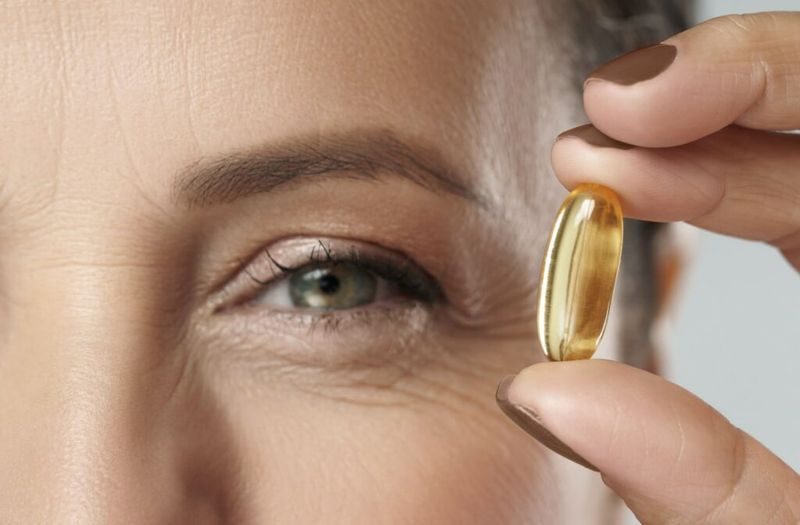
Persistent dryness may indicate a deficiency in vitamin A or omega-3 fatty acids, both important for skin and eye health. Include carrots, sweet potatoes, and fish in your diet to address this.
Struggling with dry skin or eyes? A shortage of vitamin A or omega-3 fatty acids might be behind it. These nutrients are essential for maintaining moisture and health in your skin and eyes. By boosting your intake, you can alleviate these uncomfortable symptoms.

Well, hello there!
My name is Jennifer. Besides being an orthodontist, I am a mother to 3 playful boys. In this motherhood journey, I can say I will never know everything. That’s why I always strive to read a lot, and that’s why I started writing about all the smithereens I came across so that you can have everything in one place! Enjoy and stay positive; you’ve got this!

